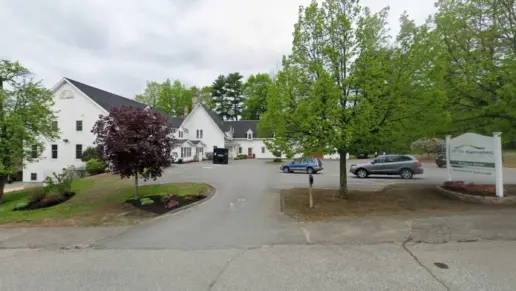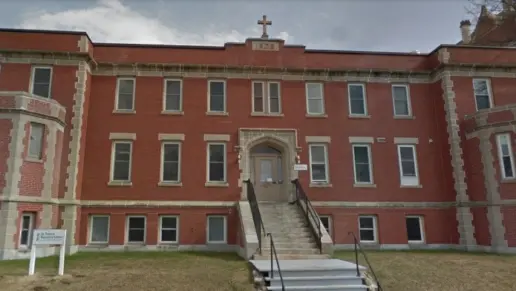Amazing place to worship God. They have this friendly, family-oriented atmosphere that makes God come over. I love studying the truths of every part of the Bible - verse by verse, chapter by chapter and book by book. I was growing in the love and relationship that God desire ...
About Calvary Residential Discipleship Women’s
Calvary Residential Discipleship Women's is a one year live in program for women who are seeking a way of escape from drugs, alcohol, and other life-controlling issues, along with a deeper relationship with our Lord Jesus Christ. Calvary Residential Discipleship Women's is located in Orrington, Maine.
Calvary Residential Discipleship Women’s believes Jesus is the only way to true freedom from the sin of addiction. Their program is based entirely on the Word of God. Christian discipleship is at the center of everything they do.
Phase 1 is a two-month phase of the program with a highly restricted and monitored schedule. The resident must complete foundational courses of personal study, attend daily instructional studies and attend regular church services. Studies will address issues that lead to addictions, destructive behavior, wrong decision making, and much more.
Phase 2 is four months of the residential stay, where the resident now becomes a serious Bible student, required to attend special study classes as well as the daily instructional studies and church services. Work projects for Phase Two residents may be outside of the residence and more community focused, emphasizing the serving of others. This phase is still very restrictive and structured.
Latest Reviews
Rehab Score
Gallery
Other Forms of Payment
Self-pay involves paying for treatment out of your own pocket. You can use savings or credit, get a personal loan, or receive help from family and friends to fund your treatment. If you don't have insurance or your insurance plan doesn't cover a specific program, self-pay can help ensure you still get the care you need.
Private insurance refers to any kind of healthcare coverage that isn't from the state or federal government. This includes individual and family plans offered by an employer or purchased from the Insurance Marketplace. Every plan will have different requirements and out of pocket costs so be sure to get the full details before you start treatment.
Financial aid can take many forms. Centers may have grants or scholarships available to clients who meet eligibility requirements. Programs that receive SAMHSA grants may have financial aid available for those who need treatment as well. Grants and scholarships can help you pai for treatment without having to repay.
Addiction Treatments
Levels of Care
Treatments
The goal of treatment for alcoholism is abstinence. Those with poor social support, poor motivation, or psychiatric disorders tend to relapse within a few years of treatment. For these people, success is measured by longer periods of abstinence, reduced use of alcohol, better health, and improved social functioning. Recovery and Maintenance are usually based on 12 step programs and AA meetings.
Drug rehab in Maine is the process of helping someone learn how to live without the use of substances. Professional staff provide treatment to address the various issues of addiction. Methods often involve medication, counseling, and evidence-based therapies.
Opioid rehabs specialize in supporting those recovering from opioid addiction. They treat those suffering from addiction to illegal opioids like heroin, as well as prescription drugs like oxycodone. These centers typically combine both physical as well as mental and emotional support to help stop addiction. Physical support often includes medical detox and subsequent medical support (including medication), and mental support includes in-depth therapy to address the underlying causes of addiction.
Substance rehabs focus on helping individuals recover from substance abuse, including alcohol and drug addiction (both illegal and prescription drugs). They often include the opportunity to engage in both individual as well as group therapy.
Programs


Clinical Services
Group therapy is any therapeutic work that happens in a group (not one-on-one). There are a number of different group therapy modalities, including support groups, experiential therapy, psycho-education, and more. Group therapy involves treatment as well as processing interaction between group members.
In individual therapy, a patient meets one-on-one with a trained psychologist or counselor. Therapy is a pivotal part of effective substance abuse treatment, as it often covers root causes of addiction, including challenges faced by the patient in their social, family, and work/school life.
Nicotine Replacement Therapy (NRT) is a way of getting nicotine into the bloodstream without smoking. It uses products that supply low doses of nicotine to help people stop smoking. The goal of therapy is to cut down on cravings for nicotine and ease the symptoms of nicotine withdrawal.
Amenities
-
Hiking
Contact Information
154 River Road
Orrington, ME 04474


